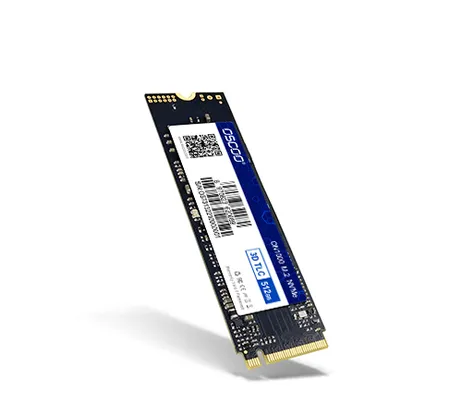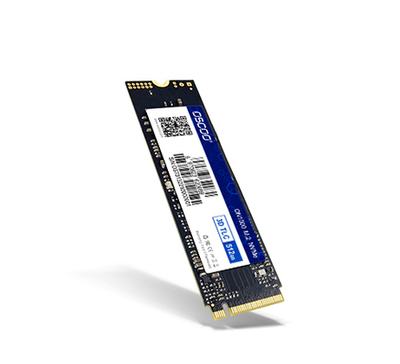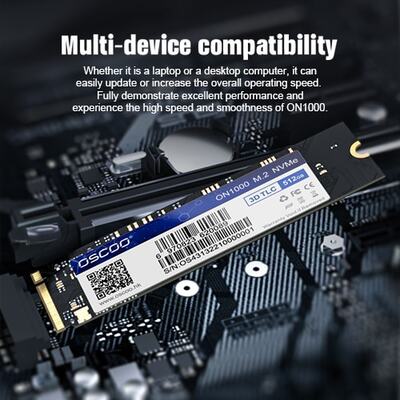News
Site Editor
 Site
/uploads/image/64e425c3edfef.png
If you're still using an HDD in your computer, here's why upgrading to an internal SSD is a smart move.
Site
/uploads/image/64e425c3edfef.png
If you're still using an HDD in your computer, here's why upgrading to an internal SSD is a smart move.
Upgrading to an Internal SSD for Your Computer
Views: 1146
Author: Site Editor
Publish Time: 2024-03-27
Origin: Site
In the realm of computer hardware, few upgrades offer as significant a performance boost as switching from a traditional hard disk drive (HDD) to a solid-state drive (SSD). While HDDs have been the go-to storage solution for decades,
internal SSDs have emerged as a superior alternative, offering faster speeds, improved reliability, and enhanced efficiency. If you're still using an HDD in your computer, here's why upgrading to an internal SSD is a smart move.
Speed and Performance
SSDs are renowned for their blazing-fast read and write speeds compared to HDDs. Traditional hard drives rely on spinning platters and a mechanical arm to read and write data, which inherently introduces latency. In contrast, SSDs use flash memory, enabling near-instantaneous access to data. This results in significantly faster boot times, quicker application launches, and smoother overall system performance. Tasks that once took minutes on an HDD can be completed in seconds with an SSD.

Improved Responsiveness
One of the most noticeable benefits of upgrading to an SSD is the overall responsiveness of your system. Whether you're opening files, browsing the web, or multitasking between applications, you'll experience a snappier and more fluid computing experience. SSDs excel in random access operations, meaning they can quickly access small, scattered pieces of data without the latency associated with HDDs. This translates to smoother performance, especially in tasks that involve accessing numerous files simultaneously.
Enhanced Reliability and Durability
SSDs have no moving parts, unlike HDDs, which are susceptible to mechanical failure due to the spinning platters and moving read/write heads. This inherent difference makes SSDs more resistant to shock, vibration, and physical damage, making them a more reliable storage solution for laptops and desktops alike. Additionally, SSDs are less prone to data loss due to bad sectors or disk fragmentation, offering peace of mind when it comes to the safety of your valuable data.
Energy Efficiency
SSDs consume less power than HDDs, making them a more energy-efficient storage option. With the growing emphasis on sustainability and energy conservation, upgrading to an SSD can help reduce your carbon footprint and lower your electricity bills over time. This is particularly beneficial for laptops, where battery life is a critical factor. By requiring less power to operate, SSDs can extend the battery life of your laptop, allowing you to work or play for longer periods between charges.
Compact Form Factor
SSDs come in smaller form factors than traditional HDDs, allowing for more flexibility in system design and configuration. This is especially advantageous in compact desktops or ultrabooks where space is at a premium. SSDs can be easily integrated into slim devices without sacrificing performance or storage capacity. Furthermore, the absence of moving parts makes SSDs less susceptible to damage from physical shocks or vibrations, making them ideal for mobile computing environments.
Quiet Operation
The mechanical components of HDDs produce audible noise during operation, including spinning platters and moving read/write heads. In contrast, SSDs operate silently since they have no moving parts. This can lead to a quieter computing environment, particularly in environments where noise levels are a concern, such as recording studios or home offices. By eliminating the noise generated by traditional hard drives, SSDs contribute to a more peaceful and distraction-free workspace.
Future-Proofing Your System
As technology advances, software applications and operating systems become more resource-intensive, placing greater demands on storage devices. By upgrading to an SSD, you future-proof your system against obsolescence and ensure compatibility with the latest software and hardware innovations. SSDs offer ample storage capacities and high-speed interfaces, enabling your system to keep pace with evolving technology trends without sacrificing performance or reliability.
In conclusion, upgrading to an
internal SSD represents a worthwhile investment that can dramatically improve the speed, responsiveness, reliability, and efficiency of your computer. Whether you're a casual user looking to boost productivity or a professional seeking optimal performance, the benefits of SSDs are undeniable. With their superior speed, durability, and energy efficiency, SSDs are the storage solution of choice for modern computing environments. If you haven't already made the switch, now is the time to upgrade and unlock the full potential of your system.

